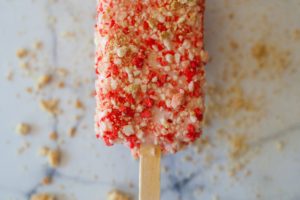
It’s common knowledge that sugar isn’t good for us.
However, artificial sweeteners have been seen as a healthy option for years.
According to research from the Rammazini Institute, this is not true.
The Research
New results were published in the International Journal of Occupational and Environmental Health by researchers who tested Sucralose (Splenda) on mice.
They fed them pre-natally in various increments.
Firstly, researchers saw an increase in cancerous growth on male mice, a risk that grew as the dose increased.
Secondly, the risk of leukemia was greater in male mice when doses of 2,000 to 16,000 ppm of Splenda were used.
What Does This Mean?
At this point, we are seeing that “the findings don’t support previous data that suggests Sucralose is biologically inert,”
Now “more studies need to show the safety of Sucralose, including more adequate carcinogenic bioassay on rats”.
“Considering millions of people are exposed, follow-up studies are urgent.”
The team first presented these findings in 2012 at a conference in London.
This prompted The Center for Science in the Public Interest (CSPI) to downgrade Sucralose from “safe” to “caution.”
From Caution To Avoid
Thanks to the new research those findings, the CSPI has made another move: from “caution” to “avoid.”
The American Heart Association however continues to promote artificial sweeteners.
While the FDA still deems them ”safe.” despite mounting evidence questioning their safety.
- The damage to gut bacteria
- Their neurotoxic potential (the ability to affect the nervous system)
- How they raise insulin
- How they manipulate the metabolism
All these possibilities are concerning. This is why you must weigh up the cost of consuming artificial sweeteners.
If not for your own health, for the health of your children.
A Quick Reference Guide
Finally, to help you out, I have listed some common products that often contain Sucralose:
- Low-fat flavoured milk & yogurt
- Cereals & cereal bars
- Light desserts & ice creams
- Canned fruit & sweets
- Light juice, iced tea & soft drinks
- Low calorie maple syrup, jams & jelly
David L. Edwards is an author, Chinese medicine physician and acupuncturist. He is the author of The Body Fat Formula and The Pocketbook guide to Chinese medicine. David is the director of Barefoot Health and Wellness health programs.
If you got value from this article, share it with your friends on Facebook by clicking the share button so they too get access to this important information.






Leave a Reply